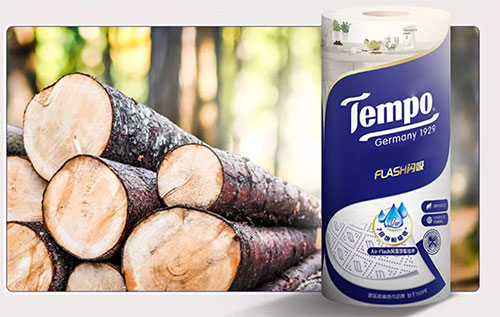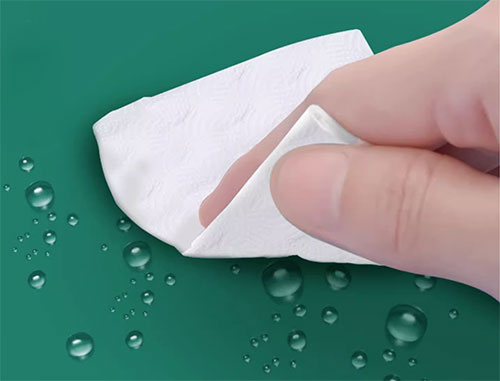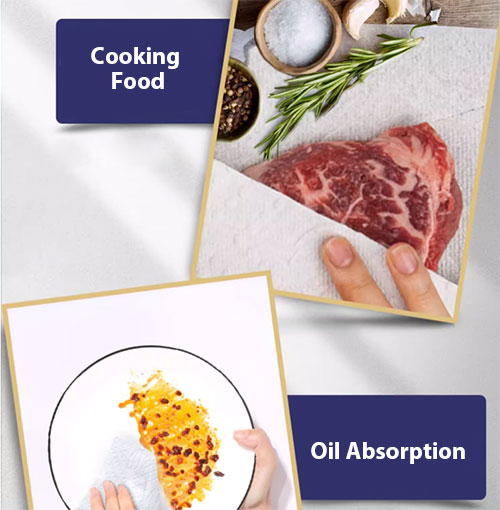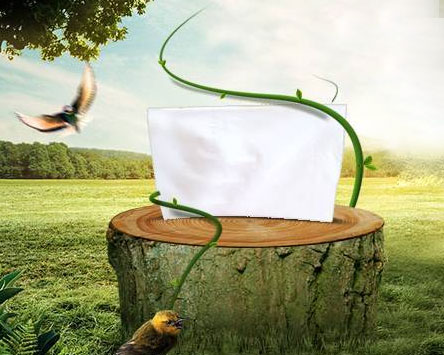+86-18927501869
- All
- Product Name
- Product Keyword
- Product Model
- Product Summary
- Product Description
- Multi Field Search
 English
English English
EnglishViews: 190 Author: Allen YI Publish Time: 2023-09-29 Origin: Site








The kitchen is often deemed the heart of the home. It's where meals are prepared, where families gather, and, most importantly, where hygiene is paramount. In the ongoing quest to maintain cleanliness, kitchen roll paper towels play an instrumental role. They not only keep the space spick and span but also prevent cross-contamination, safeguarding the health of everyone who steps foot in the kitchen.
Kitchen roll, commonly referred to as paper towels, is a type of absorbent textile crafted from paper rather than woven fabric. Unlike cloth towels, they are designed for single use, ensuring a fresh, uncontaminated tool for each cleaning task.
The concept of kitchen roll was introduced in the early 20th century, born out of a production mishap that led to the creation of thick paper sheets. Instead of disposing of them, they were sold as disposable towels, and the idea quickly took off.
Over the years, the evolution of kitchen roll paper towels has been remarkable. Initially deemed a luxury item, advancements in production methods and increasing consumer demand turned them into a household essential. From being a simple absorbent sheet, innovations have now equipped them with features like select-a-size options, varying thickness levels, and even printed designs.
The adoption of kitchen roll towels in households was rapid due to their convenience and hygiene factors. From mopping up spills, drying hands, to being an essential BBQ companion, their utility has been recognized and appreciated universally. As environmental concerns began to rise, brands also started producing eco-friendly options, making it easier for consumers to make sustainable choices.

Virgin Wood Pulps: This is the primary raw material for many kitchen rolls. Extracted directly from trees, it offers inherent absorbency and strength. However, concerns related to deforestation and environmental sustainability are pushing producers to look for alternative sources.
Recycled Paper: As the name suggests, this is paper that has already been used and is then processed to be used again. Kitchen rolls made from recycled paper are generally not as white or as absorbent as those made from virgin wood pulps but are more eco-friendly.
Bamboo Fibers: Bamboo, known for its rapid growth and renewability, is emerging as a favored alternative to traditional wood sources. Beyond being sustainable, bamboo fibers are also naturally antibacterial, making them an excellent material for kitchen purposes.
Pulping: The initial step involves converting the raw material (wood, bamboo, or recycled paper) into pulp, a semi-liquid mixture comprising individual fibers.
Sheet Formation: The pulp is spread out on screens, letting the water drain off and leaving a layer of matted fibers.
Pressing and Drying: The fiber mat undergoes pressing between large rollers to eliminate the remaining water, followed by a drying process.
Final Touches: For enhanced absorbency and a tactile appeal, the dried sheet is embossed. This sheet is then segmented into the typical paper towel squares.

Nature of Fibers: Cellulose fibers, which constitute paper towels, are hydrophilic. This means they possess a natural inclination to attract water, leading to high absorbency. Moreover, the spaces amidst these fibers serve as channels, facilitating the drawing up of liquids via capillarity.
Significance of Embossing: The patterns or imprints visible on paper towels aren't purely decorative. Embossing enhances the towel's surface area and introduces pockets or channels which can accommodate more liquid, thereby amplifying its absorbency.
Kitchen roll paper towels, due to their looser weave, showcase superior absorbency compared to regular writing or printing paper.
In comparison to cloth towels, the disposability of paper towels minimizes risks linked to bacterial proliferation from repetitive use. Their structure, tailored for single-use efficacy, renders them notably absorbent, especially for instantaneous clean-ups.
Armed with the knowledge of the composition and the science behind the absorbency of kitchen roll paper towels, consumers can make informed choices and appreciate the technology and thought that goes into such a commonplace household item.

With their innate absorbency and structural design, kitchen roll paper towels enable users to address spills and messes promptly. This quick response time not only tidies up the area but also reduces potential hazards, like slipping on wet floors.
Unlike cloth towels that may harbor bacteria over multiple uses, disposable kitchen paper towels lower the risk of cross-contamination. Each use is followed by disposal, ensuring that germs are not transferred from one surface to another or retained for subsequent clean-ups.
Paper towels require no maintenance – there's no need for washing or drying. Their single-use nature assures users of a clean towel each time, making them especially handy during busy kitchen hours.
Beyond mopping up spills, kitchen paper towels can be employed for a range of tasks, such as oil draining fried foods, covering dishes in microwaves to prevent splatters, or even as a temporary lid to prevent food from drying out.

The manufacturing of kitchen roll paper towels, especially those sourced from virgin wood pulps, carries significant environmental costs. Deforestation, energy consumption in production, and the carbon footprint associated with distribution are concerns that users should be aware of.
With growing environmental consciousness, many brands are gravitating towards more sustainable practices. This includes sourcing materials from responsibly managed forests, using recycled content, and even incorporating bamboo or other rapidly renewable resources.
Kitchen rolls made from recycled paper are a greener choice, reducing the strain on forests and consuming less energy in their production compared to virgin pulp paper towels.
While paper towels are biodegradable, they often come into contact with contaminants like oils or cleaning agents that might affect this. Composting used kitchen paper towels is an option, but only if they haven't been in contact with harmful chemicals. It's pivotal to understand the disposal recommendations of the specific brand and type of kitchen roll paper towel being used.
Understanding the benefits, alongside the environmental implications of kitchen roll paper towels, allows users to make more informed choices, both in their purchasing decisions and in their everyday kitchen practices.
Kitchen roll paper towels have steadily evolved from a mere luxury to an indispensable tool in the modern kitchen. Their multifaceted applications, ranging from speedy clean-ups to versatile kitchen tasks, underline their significance in maintaining hygiene and efficiency. These paper towels, with their instant absorbency and single-use nature, substantially limit the spread of bacteria, ensuring a healthier kitchen environment.
However, as with many products, there's a flip side – the environmental implications. Every choice we make as consumers reverberates in the environment, and kitchen roll paper towels are no exception. From their production to their disposal, they leave an environmental footprint. Hence, it's paramount for consumers to be informed and deliberate in their choices.
Choosing brands that prioritize sustainability, understanding the materials that constitute your kitchen towels, and recognizing their absorbency and disposability can greatly influence both their utility in the kitchen and their impact on the planet.
Sywipe seizes every opportunity to use high-quality resources, including peer-reviewed research, to support the facts in our article. Learn more about our factory and how to keep the content accurate, reliable, and trustworthy.
《What are the 10 Magical Uses of Kitchen Paper Towels?》
《What Pulp is Used for Making Toilet Paper Towel?》
《How to Use Kitchen Tissue Paper Towel Roll?》
《What Makes Bamboo Pulp Paper Unique Compared to Wood Pulp?》
《What are the 10 Tips to Clean Kitchen Grease Using Paper Towels?》
Our Customers Always Come First
Trust is the Foundation of Our Service
sales@clean-wipe.com
sywipe@clean-wipe.com
Room 4611, No. 372 Huanshi East Road, Yuexiu District, Guangzhou,China.
+86-18927501869 / +86-20-81608597
/ +86-18927501869